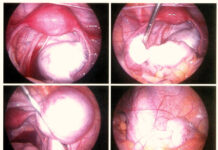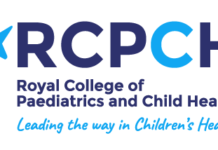- Searches for ‘becoming a first-time mum’ have increased by +467% and ‘becoming a first-time day’ by +335% over the past year.
- Life insurance broker, Reassured, has teamed up with Parenting Coach, Isobel Mary Champion and Dr Deborah Lee, Dr Fox Online Pharmacy to answer the most googled questions all around being a new parent.
Searches for ‘becoming a first-time mum’ have increased by +467%1 and ‘becoming a first-time dad’ by +335% over the past year, which indicates that many parents-to-be are still having some questions before their newborn arrives.
To bring some light into the unknown for first-time parents, life insurance broker, Reassured, has teamed up with Parenting Coach, Isobel Mary Champion and Dr Deborah Lee from Dr Fox Online Pharmacy to answer the most Googled postpartum questions to help new parents:
1. How can you tell if your baby is still hungry after breastfeeding?
The best approach to take to ensure that your baby has a full tummy is to feed upon waking! When you feed your baby to sleep or right before a nap, the baby usually falls asleep before their tummy is full. Feeding on waking will help ensure your baby takes a full feeding and may also help your baby sleep better! If you are uncertain, you can consult a qualified lactation consultant.
2. Can you drink alcohol when breastfeeding?
The occasional drink is unlikely to harm your baby, but we warn against bedsharing with your baby after consuming alcohol for safety reasons and avoiding binge drinking as this may make you less aware of your baby’s needs. Current advice suggests consuming no more than 14 units a week spread over at least 3 days, with several drink-free days each week.
Avoid breastfeeding for 2 or 3 hours after each drink to allow time for the alcohol to leave the breastmilk. You may want to plan ahead by expressing some breast milk before social events for feeds afterwards! If you are concerned about alcohol and breastmilk, it is best to consult your GP. So, nothing stands in the way of a much-needed chat and glass of wine with your friends but be sure to be mindful!
3. How long after having a baby can you have sex again?
There are no hard and fast rules, and for most women, you can have sex whenever you feel ready – with a few provisos. For most women, it’s advisable to wait for the cervix to shrink back to its normal size, and any vaginal swelling or bruising from the delivery, to settle. 9 out of 10 women* will have some sort of abrasions, cuts, or have had an episiotomy, and these need to be allowed to heal first. Although the skin heals within 10 days, the deeper tissues take 4 weeks.
Having sex too early increases the risk of infection and haemorrhage. As a rule of thumb, you should wait to have sex until the vaginal bleeding after the delivery has stopped, which in some women, can take several weeks. A helpful marker is your 6-week check – if all is normal, this can be the green light!
4. When can I start working out again after having a baby?
You should wait until at least 6 weeks after giving birth when you will have your postnatal check-up with your GP. After that, remember that everyone is different, and it’s up to you when you feel ready! Start slowly and just do what you feel comfortable doing. A good place to start is where you left off the last time you worked out but avoid any abdominal exercises (such as planks!). If you are uncertain consult a qualified post-natal personal trainer to ensure you are exercising safely.
5. How does the sex drive change after having a baby?
We can decipher between physical and phycological reasons which can have a negative effect on new parents’ sexual desire. Many women experience pain during sex after childbirth, which will, however, often disappear with time as the body heals. Breastfeeding can be another reason as it’s linked to low estrogen levels which can cause a lack of natural lubrication, but this is also temporary and improves as breastfeeding becomes less frequent.
On the other hand, both parents can experience a lower sex drive due to changed priorities as the baby is now the number one priority, lack of sleep and feeling overwhelmed juggling the needs of a new baby. Often, if both parents feel supported and understood, intimacy is more likely to follow.
A spokesperson from Reassured comments on the research: “Becoming a first-time parent can be an exciting, but also daunting step. It is helpful to be prepared for all eventualities as best as possible, although raising a child cannot always be fully planned. As one of the UK’s largest life insurance brokers, we’re committed to helping families secure suitable financial protection at the most affordable rate, providing vital peace of mind for new parents.”
To find out more about Reassured, please visit their website: https://www.reassured.co.uk/life-insurance/how-much-does-it-cost-to-raise-a-child-uk/
Help keep news FREE for our readers
Supporting your local community newspaper/online news outlet is crucial now more than ever. If you believe in independent journalism, then consider making a valuable contribution by making a one-time or monthly donation. We operate in rural areas where providing unbiased news can be challenging. Read More About Supporting The West Wales Chronicle























